 BY ELLEN MEISTER
BY ELLEN MEISTER
When my adult writing students confess their struggles with self-doubt, they usually look panicked. I can’t possibly be a real writer, their eyes seem to say. I’m just never sure what I’m doing is right.
That’s when I explain that self-doubt is the fuel that drives us forward. Show me a writer with unshakable confidence, I tell them, and I’ll show you a lousy writer.
No one proves this more than Dorothy Parker. Though arguably the greatest literary wit of the twentieth century, she battled those demons of doubt every day.
In 1956, when interviewed by Paris Review and asked about the period in which she wrote poems, Parker replied, “My verses. I cannot say poems. Like everybody was then, I was following in the exquisite footsteps of Miss Millay, unhappily in my own horrible sneakers. My verses are no damn good. Let’s face it, honey, my verse is terribly dated—as anything once fashionable is dreadful now. I gave it up, knowing it wasn’t getting any better, but nobody seemed to notice my magnificent gesture.”
No damn good? I beg to differ. Dorothy Parker’s poetry still resonates with freshness and wit. Even her darkest verses, such as Resumé, have legions of modern fans.
But her self-deprecation didn’t stop there. In a 1945 telegram to her publisher at Viking she wrote: ALL I HAVE IS A PILE OF PAPER COVERED WITH WRONG WORDS. CAN ONLY KEEP AT IT AND HOPE TO HEAVEN TO GET IT DONE. DONT KNOW WHY IT IS SO TERRIBLY DIFFICULT OR I SO TERRIBLY INCOMPETENT.
The telegram referred to an introduction she had agreed to write for a collection of F. Scott Fitzgerald’s work. And it followed on the heels of an even more painful period of inertia, as she had been unable to fulfill her contract to write a novel. This was a lifelong thorn in her heart. Parker wanted desperately to write a novel, but couldn’t seem to get out of her own way. Her perfectionism may have been the culprit, as she was a relentless self-editor. In that same Paris Review interview she explained that it took her six months to write a short story, saying, “I can’t write five words but that I change seven.”
Clearly, she found the process more filled with despair than joy. It’s no wonder then, that she offered up the following advice: “If you have any young friends who aspire to become writers, the second greatest favor you can do them is to present them with copies of The Elements of Style. The first greatest, of course, is to shoot them now, while they’re happy.”
If that gives you pause, consider an even more famous quote from Parker: “I hate writing, I love having written.” Even if your feelings aren’t quite that extreme, the message is clear—the doubt isn’t going anywhere, so you may as well put away the panic and get to work.
Ellen Meister is a novelist, essayist, public speaker and creative writing instructor at Hofstra University (Hempstead, NY). She runs a popular Dorothy Parker page on Facebook that has almost150,000 followers.
Her fifth novel, Dorothy Parker Drank Here, is in stores now. To connect with Ellen, visit ellenmeister.com, and for daily quotes from Dorothy Parker, follow her Facebook page.
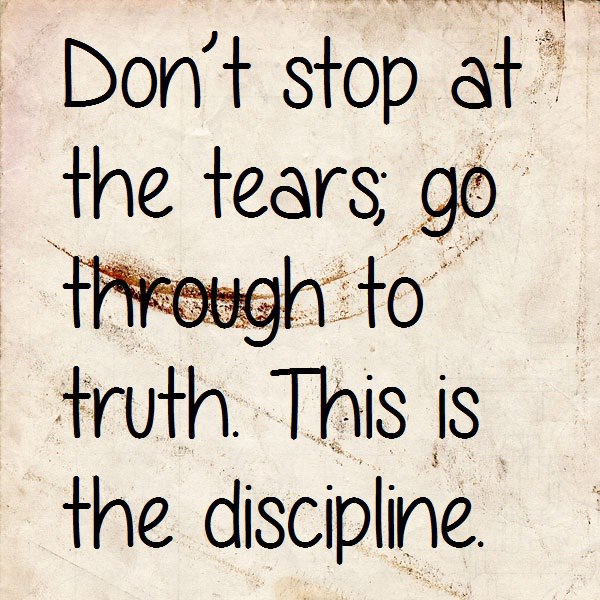 The above quote is by Natalie Goldberg from Writing Down the Bones.
The above quote is by Natalie Goldberg from Writing Down the Bones.


 The above quote is by Natalie Goldberg from Writing Down the Bones.
The above quote is by Natalie Goldberg from Writing Down the Bones.



Another quote from Susan Shaughnessy (Walking on Alligators).



Another quote from Susan Shaughnessy (Walking on Alligators).


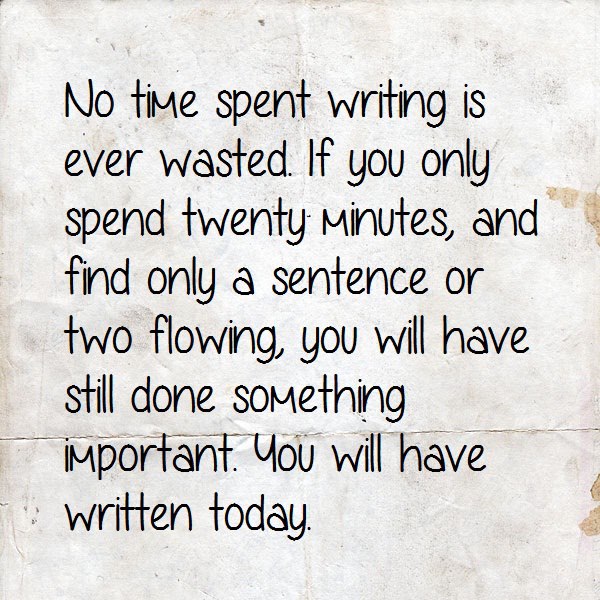
The above quote is from Susan Shaughnessy (Walking on Alligators).



The above quote is from Susan Shaughnessy (Walking on Alligators).


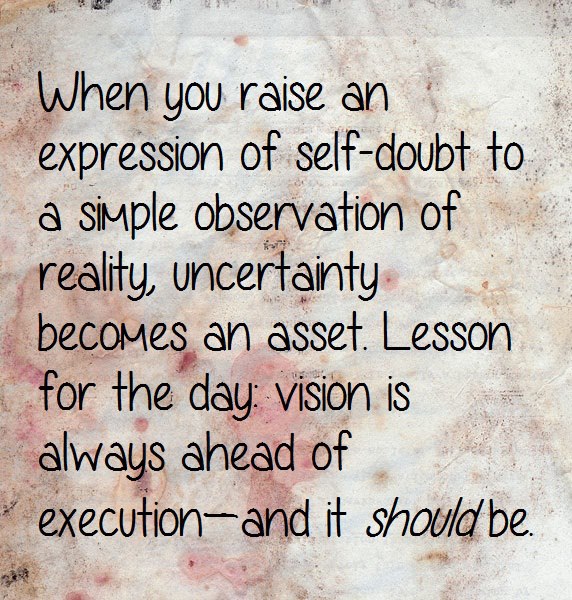
This week’s quote comes from David Bayles and Ted Orland. It is from the fabulous craft book Art and Fear.



This week’s quote comes from David Bayles and Ted Orland. It is from the fabulous craft book Art and Fear.


 The legendary Gore Vidal died yesterday at age 86.
The legendary Gore Vidal died yesterday at age 86.
Here, we remember him with some stirring quotes from an interview we printed in 1975, showcasing him at his most “prolific, elegant and acerbic” (as The New York Times aptly described him earlier today).
Rest in peace, Gore.
*
“You can improve your talent, but your talent is a given, a mysterious constant. You must make it the best of its kind.”
“I’ve always said, ‘I have nothing to say, only to add.’ And it’s with each addition that the writing gets done. The first draft of anything is really just a track.”
“The reason my early books are so bad is because I never had the time or the money to afford constant revisions.”
“That famous writer’s block is a myth as far as I’m concerned. I think bad writers must have a great difficulty writing. They don’t want to do it. They have become writers out of reasons of ambition. It must be a great strain to them to make marks on a page when they really have nothing much to say, and don’t enjoy doing it. I’m not so sure what I have to say but I certainly enjoy making sentences.”
“Constant work, constant writing and constant revision. The real writer learns nothing from life. He is more like an oyster or a sponge. What he takes in he takes in normally the way any person takes in experience. But it is what is done with it in his mind, if he is a real writer, that makes his art.”
“I’ll tell you exactly what I would do if I were 20 and wanted to be a good writer. I would study maintenance, preferably plumbing. … So that I could command my own hours and make a good living on my own time.”
“If a writer has any sense of what journalism is all about he does not get into the minds of the characters he is writing about. That is something, shall we say, Capote-esque—who thought he had discovered a new art form but, as I pointed out, all he had discovered was lying.”
“A book exists on many different levels. Half the work of a book is done by the reader—the more he can bring to it the better the book will be for him, the better it will be in its own terms.”
[When asked which genre he enjoys the most, and which genre comes easiest:]
“Are you happier eating a potato than a bowl of rice? I don’t know. It’s all the same. … Writing is writing. Writing is order in sentences and order in sentences is always the same in that it is always different, which is why it is so interesting to do it. I never get bored with writing sentences, and you never master it and it is always a surprise—you never know what’s going to come next.”
[When asked how he would like to be remembered:]
“I suppose as the person who wrote the best sentences in his time.”
—All quotes from “The Complete Works on Gore Vidal” by Russell Halley, Joseph Pilcher and Michael S. Lasky, Writer’s Digest, March 1975
–
 Zachary Petit is an award-winning journalist, the managing editor of Writer’s Digest magazine, and the co-author of A Year of Writing Prompts: 366 Story Ideas for Honing Your Craft and Eliminating Writer’s Block.
Zachary Petit is an award-winning journalist, the managing editor of Writer’s Digest magazine, and the co-author of A Year of Writing Prompts: 366 Story Ideas for Honing Your Craft and Eliminating Writer’s Block.
Like what you read from WD online? Check us out in print—click here for our low subscription rat
 A couple of months back, I had the pleasure of talking writing over a Guinness with Andre Dubus III, author of House of Sand and Fog, Townie, and other books.
A couple of months back, I had the pleasure of talking writing over a Guinness with Andre Dubus III, author of House of Sand and Fog, Townie, and other books.
Our profile of Dubus in WD magazine is on its way to subscribers right now, and will hit newsstands June 5. In the meantime, here are some of my favorite unpublished excerpts from the interview—those inspirational writing bits that wouldn’t fit neatly into the piece, and deserve better than to be lost in the jumble of notebooks on my desk.
I’ve also got a new copy of Dubus’ memoir Townie on hand—I’ll give it to one randomly drawn commenter on this post below.
Happy Friday. Here’s Dubus on how to stay true to yourself and your work, and some other tips.
* * *
“If you don’t put 99 percent of yourself into the writing, there will be no publishing career. There’s the writer and there’s the author. The author—you don’t ever think about the author. Just think about the writer. So my advice would be, find a way to not care—easier said than done. Accept that the world may never notice this thing you worked so hard at. And instead, do it for it, find a job, find a way of living that gives you an hour or two or three a day to do it, and then work your ass off sending out, trying to get out there, but do not put the pressure on the work to do something for you. Because then you’re going to be writing dishonestly and for the market instead of for the characters and your story.”
“There are some beautiful books out there. But the ones that leave me cold are the ones where I feel—it’s that postmodern thing—it’s more experimentation with language than it is a deep compassionate falling into another human being’s experience.”
“I really think that if there’s any one enemy to human creativity, especially creative writing, its self-consciousness. And if you have one eye on the mirror to see how you’re doing, you’re not doing it as well as you can. Don’t think about publishing, don’t think about editors, don’t think about marketplace.”
“I think the deeper you go into questions, the deeper or more interesting the questions get. And I think that’s the job of art.”
“One of the things I learned about writing a memoir is you can’t drag the reader through everything. Every human life is worth 20 memoirs.”
“I still have my truck, and I still have my carpentry tools, and if this writing thing dries up on a publishing level—it’s never gonna dry up for me on an artistic level because I’m never going to quit—but if all the sudden I were out in the cold in the publishing world, them I’m gonna build you a kitchen. I’m gonna do your roof. I would rather do that than sell my soul to the publishing devil. I just won’t do it.”
“I think it’s important not to talk about what you’re working on. … It releases that creative tension that can be fuel for your writing. Don’t show anyone what you’re working on. Don’t talk about it. And don’t think about it. Don’t be taking all these furious notes because I think that when we take all these notes when we’re not writing, they’re actually sexy ideas that may be just ideas. If it’s a real direction for the story, it’s gonna show up in the next day anyway. So just push it back.”
“Even a day writing badly for me is 10 times better than a day where I don’t write at all.”
 BY ELLEN MEISTER
BY ELLEN MEISTER


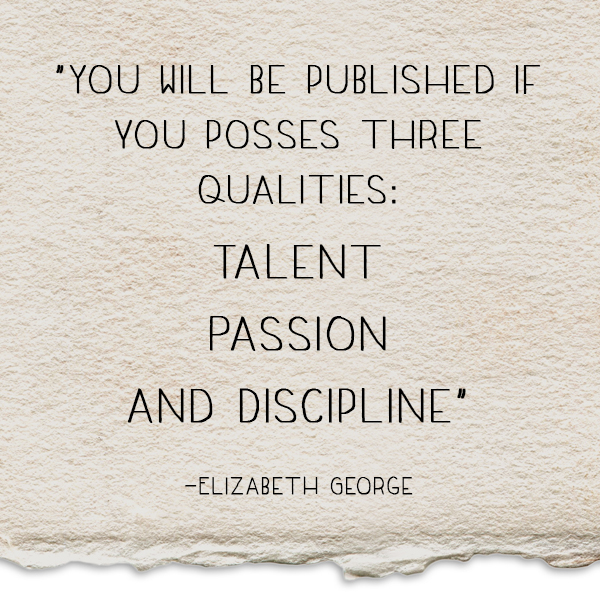
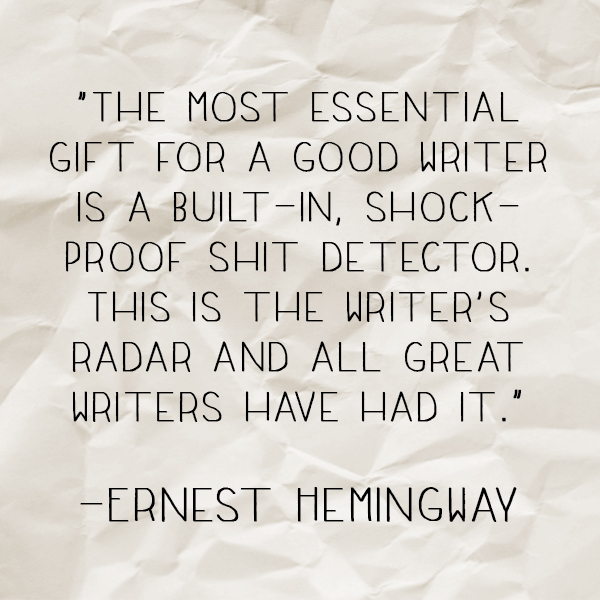


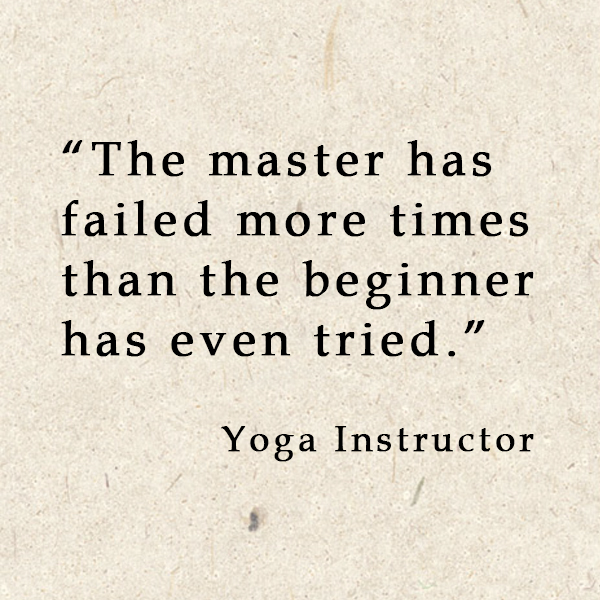

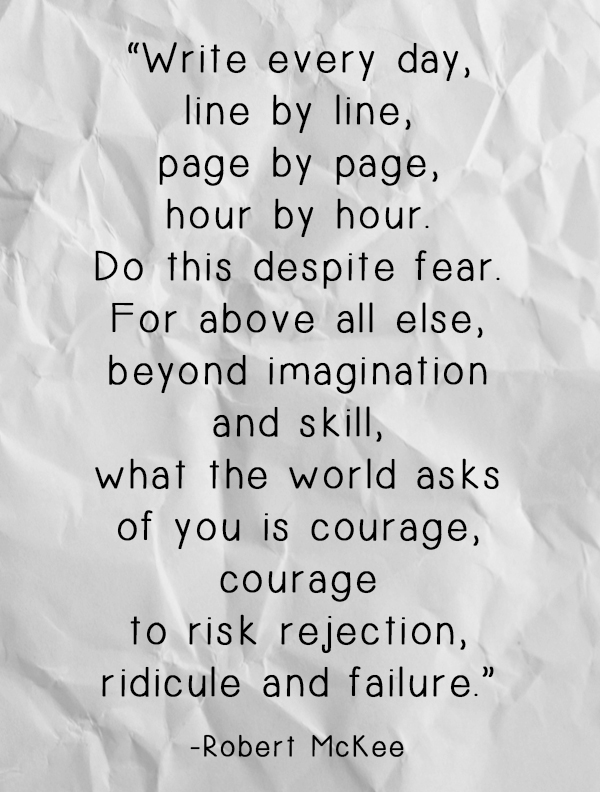
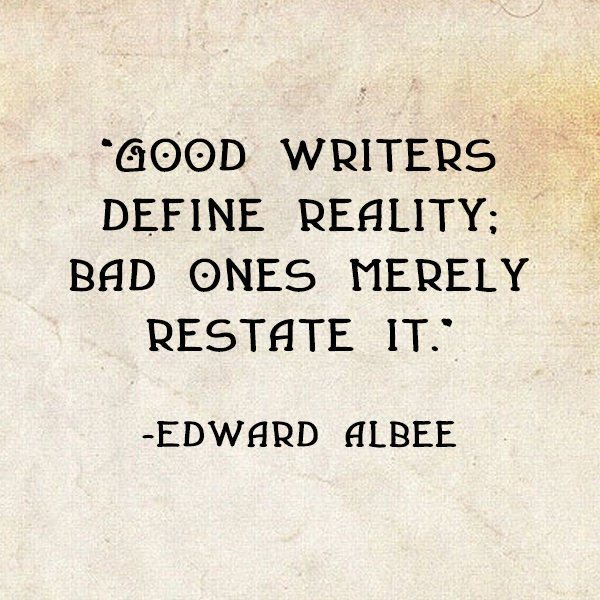
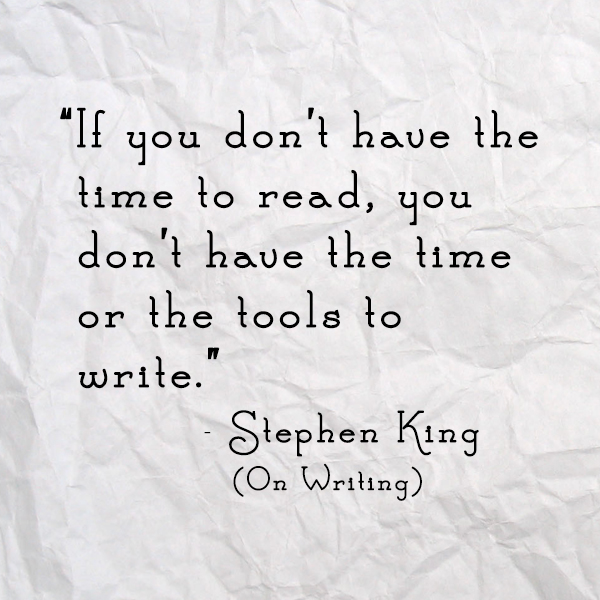
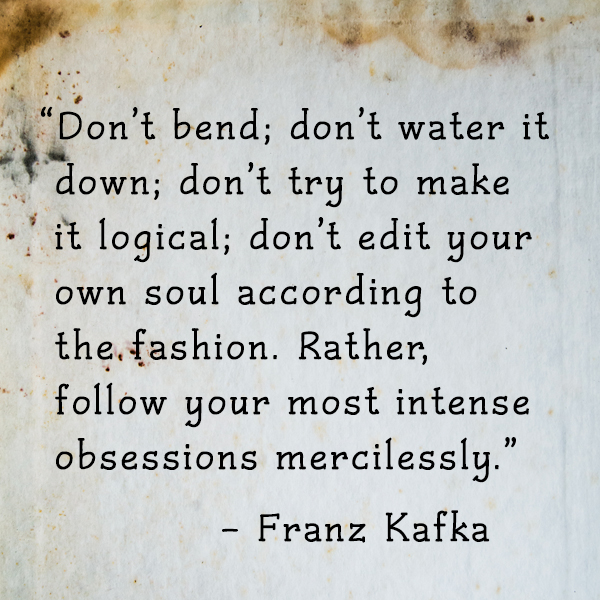








And of those, the greatest is discipline. It’s also the hardest.